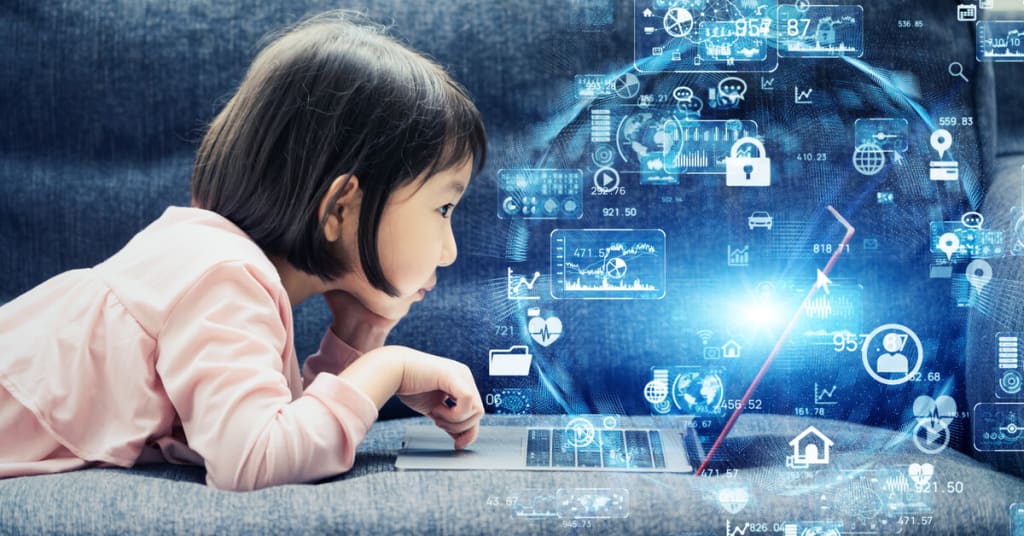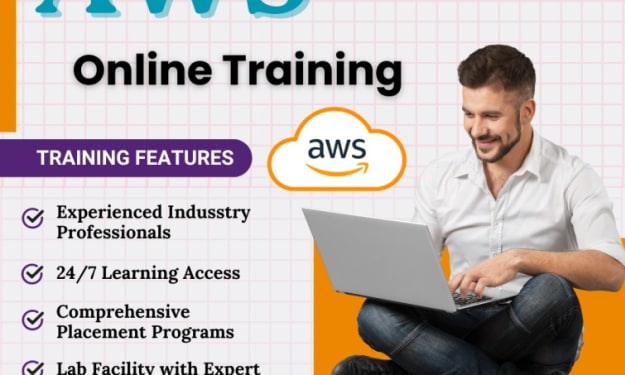Revolutionizing Education
Exploring the Future of AI in Learning

AI in education
Artificial intelligence is the science of creating intelligent machines that can perform tasks that typically require human intelligence, such as perception, reasoning, and learning. Education is one of the areas where AI has the potential to make a significant impact. AI can help educators and learners to analyze, process, and generate knowledge and information in new and innovative ways.
AI can enable personalized learning experiences, adaptive assessments, intelligent tutoring systems, and educational games. It can also automate administrative tasks, such as grading, scheduling, and record-keeping, freeing up time for teachers to focus on teaching and mentoring.
The Benefits of AI in education
AI has the potential to offer several benefits to the education sector. One of the most significant benefits is personalization. AI can help educators to provide personalized learning experiences based on each student's needs, interests, and learning styles. It can analyze student data and feedback to create adaptive learning pathways and assessments that match their proficiency levels and progress.
Another benefit of AI in education is efficiency. AI can automate administrative tasks, such as grading, scheduling, and record-keeping, reducing the workload on teachers and increasing their productivity. AI can also provide immediate feedback and support to students, reducing the time and effort required for remediation and support.
AI can also enhance the quality of education. It can provide access to vast amounts of knowledge and resources, analyze student data to identify learning gaps and challenges, and generate insights and recommendations to improve teaching and learning outcomes. AI can also enable collaborative and interactive learning experiences, such as chatbots, virtual assistants, and social learning platforms.
The future of AI in education
The future of AI in education is exciting and promising. AI has the potential to transform the way we learn and teach, making education more accessible, personalized, and effective. In the future, we can expect to see more AI-powered learning management systems, adaptive assessments, and intelligent tutoring systems.
AI can also enable new forms of immersive and interactive learning experiences, such as virtual and augmented reality, simulations, and games. AI can also support lifelong learning and upskilling, providing personalized and flexible learning opportunities for learners of all ages and backgrounds.
The future of AI in education also depends on the development of ethical and responsible AI systems. We need to ensure that AI is used to enhance and not replace human intelligence and creativity. We also need to address the ethical considerations of AI in education, such as data privacy, bias, and transparency.
AI in digital transformation
AI is a critical component of digital transformation in education. Digital transformation refers to the use of digital technologies to transform and improve the way we learn and teach. AI can enable digital transformation by providing access to vast amounts of data, insights, and resources, and automating administrative tasks.
AI can also enable new forms of online and blended learning, such as massive open online courses (MOOCs), microlearning, and personalized learning pathways. AI can also support the development of digital literacy and skills, such as coding, data analysis, and digital citizenship.
AI tools for education
AI tools are an essential part of AI-powered education. AI tools can help educators and learners to analyze, process, and generate knowledge and information in new and innovative ways. Some of the popular AI tools for education include:
• Chatbots and virtual assistants: AI-powered chatbots and virtual assistants can provide immediate support and feedback to students, answering questions, and providing guidance.
• Natural language processing (NLP): NLP can analyze and understand human language, enabling intelligent tutoring systems, automated writing assessments, and speech recognition.
• Machine learning (ML): ML can analyze student data and generate insights and recommendations for personalized learning and assessment.
• Educational games and simulations: AI-powered games and simulations can provide immersive and interactive learning experiences, enabling learners to practice and apply their knowledge and skills in real-world scenarios.
AI-powered learning management systems
AI-powered learning management systems (LMS) are another essential component of AI in education. AI-powered LMS can provide personalized and adaptive learning experiences, automate administrative tasks, and generate insights and recommendations for teaching and learning. Some of the popular AI-powered LMS include:
• Coursera: Coursera is an online learning platform that uses AI to provide personalized learning experiences, adaptive assessments, and recommendations for learners.
• Edmentum: Edmentum is an AI-powered LMS that provides personalized and adaptive learning experiences based on each student's proficiency levels and progress.
• Knewton: Knewton is an adaptive learning platform that uses AI to generate personalized learning pathways and assessments based on each student's needs, interests, and learning styles.
Personalized learning with AI
Personalized learning is one of the most significant benefits of AI in education. AI can enable personalized learning experiences that match each student's needs, interests, and learning styles. AI can analyze student data, such as performance, engagement, and feedback, to generate insights and recommendations for personalized learning pathways and assessments.
AI can also enable adaptive learning experiences that adjust to each student's proficiency levels and progress. Adaptive learning experiences can provide targeted and timely support and feedback, reducing the time and effort required for remediation and support.
AI for early childhood education
AI has the potential to make a significant impact on early childhood education. AI can provide personalized and interactive learning experiences that match each child's needs, interests, and learning styles. AI can also support the development of critical skills, such as language, literacy, and numeracy, through educational games and simulations.
AI can also enable early detection and intervention for learning challenges and disabilities. AI can analyze data from various sources, such as parent reports, teacher observations, and medical records, to generate insights and recommendations for early detection and intervention.
AI for higher education
AI can also make a significant impact on higher education. AI can provide personalized and adaptive learning experiences, automate administrative tasks, and support research and innovation. AI can also enable lifelong learning and upskilling, providing personalized and flexible learning opportunities for learners of all ages and backgrounds.
AI can also support the development of critical skills, such as critical thinking, problem-solving, and creativity, through collaborative and interactive learning experiences. AI can also support the development of new knowledge and insights through data analysis and predictive modeling.
AI for skill development and vocational training
AI can also support skill development and vocational training. AI can provide personalized and adaptive learning experiences that match each learner's needs, interests, and learning styles. AI can also provide immediate feedback and support, reducing the time and effort required for practice and mastery.
AI can also support the development of critical skills, such as coding, data analysis, and digital literacy, through educational games and simulations. AI can also support the development of industry-specific skills and competencies, enabling learners to acquire the skills they need to succeed in their chosen careers.
Challenges and limitations of AI in education
Despite the benefits of AI in education, there are also challenges and limitations. One of the most significant challenges is the ethical considerations of AI in education. AI systems can be biased, unaccountable, and opaque, raising concerns about data privacy, fairness, and transparency.
Another challenge is the lack of access to AI technologies and resources, particularly in low-income and developing countries. AI technologies can be costly and require specialized skills and expertise, limiting their reach and impact.
Ethical considerations in AI-powered education
Ethical considerations are crucial in AI-powered education. We need to ensure that AI is used to enhance and not replace human intelligence and creativity. We also need to address the ethical considerations of AI in education, such as data privacy, bias, and transparency.
We need to ensure that AI systems are transparent, accountable, and fair, and that they respect the privacy and autonomy of learners and educators. We also need to ensure that AI systems are used to promote equity and diversity, not perpetuate or exacerbate existing inequalities and biases.
Conclusion
AI has the potential to revolutionize education, making learning more effective, efficient, and personalized. AI can enable personalized learning experiences, adaptive assessments, intelligent tutoring systems, and educational games. It can also automate administrative tasks, freeing up time for teachers to focus on teaching and mentoring.
The future of AI in education is exciting and promising, but we need to ensure that it is used ethically and responsibly. We need to address the ethical considerations of AI in education, such as data privacy, bias, and transparency. We also need to ensure that AI is used to enhance and not replace human intelligence and creativity.
The future of AI in education is bright, and I am excited to see the ways in which AI will transform the way we learn and teach.
By: Ali Jafari
About the Creator
Ali Jafari
As a highly motivated and enthusiastic individual, I have experience as a consultant, researcher, writer, teacher, translator, and trader. With over 5 years of experience in teaching, managing, counseling, and trading.
Enjoyed the story? Support the Creator.
Subscribe for free to receive all their stories in your feed. You could also pledge your support or give them a one-off tip, letting them know you appreciate their work.






Comments
There are no comments for this story
Be the first to respond and start the conversation.